PORTRAIT
SENEGAL: Méya Ndiaye, a fashion addict.

Méya Ndiaye, 27, founder of “Meya boutique”, entrepreneur, passionate about fashion and beauty. She was a pupil at the institution Sainte Jeanne where she obtained her baccalaureate. She joined the Institut Supérieur de Management where she followed a bilingual path leading to a Master 2 in international management. Subsequently, she enrolled at the BEM Institute for a 2nd Master in Marketing to consolidate her knowledge in this field.
As soon as she obtained her master’s degree at the ISM, she was selected after a test with her promoters, to join a company of the place as a business intelligence officer. After a year of professional service, she started making clothes under the label “fashion abaya”. She combined for 3 years her 2 activities and then focus solely on her business. She was inspired by the diversity and beauty of women. Through her outfits, she conveys strong messages to all women and praises their authenticity.
His star quote remains that of Albert Einstein: “Everyone is a genius but if you judge a fish on his ability to climb a tree, he will spend his life believing he is stupid.”
She launched her collections and conquers well, a clientele that adheres to the fashion trend abaya. In fact, it revolutionized the classic black abaya known at the base, reserved for Muslim veiled. The touch brought by Méya boutique is the modernization of the abaya by the creation of livelier, more trendy designs that mark its imprint. The most important is the creation of models that adapt to all women regardless of their size, age or belief. It is also a way for her to reject the bodytype phenomenon to encourage “positive body”. Her vision is to make sure that all women find themselves in her brand without complex or blockage.
Currently Méya is fully committed to its project and encourages all young people to pursue their dream … “. According to her, happiness is above all to do what we love and success will follow.
His star quote remains that of Albert Einstein: “Everyone is a genius but if you judge a fish on his ability to climb a tree, he will spend his life believing he is stupid.”
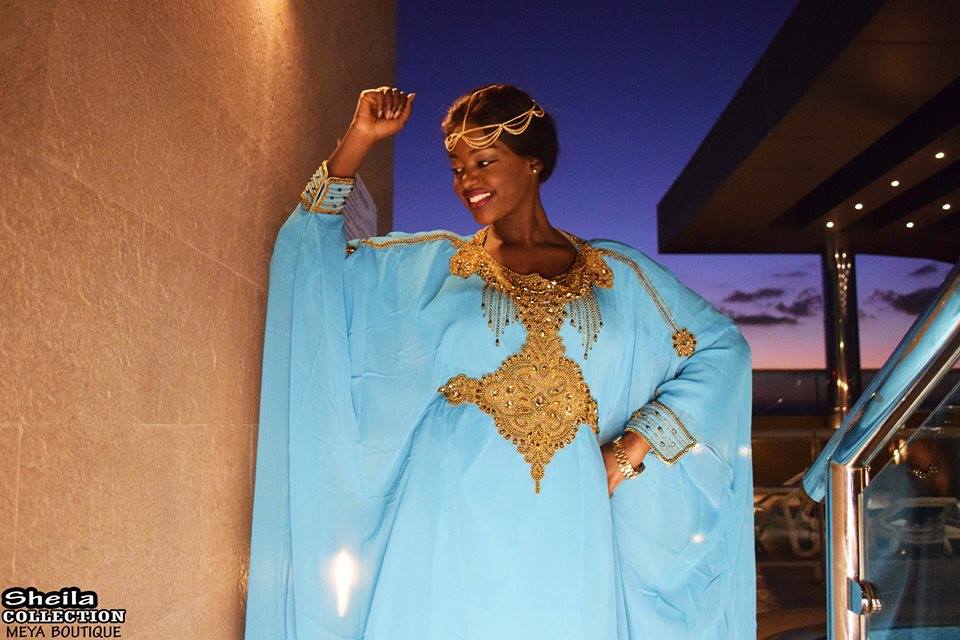
Méya Ndiaye.
Indeed, she has the conviction that every person has an area where he is good, just identify and exploit. It is important not to accept to be passing on earth, it is necessary to mark one’s time. Our actions define us, the ideal is to make his passion his work and make himself useful in society. She remains convinced that the success is at the end of the effort and encourages above all, the women to fight and to realize their dream and live thus, the true happiness.
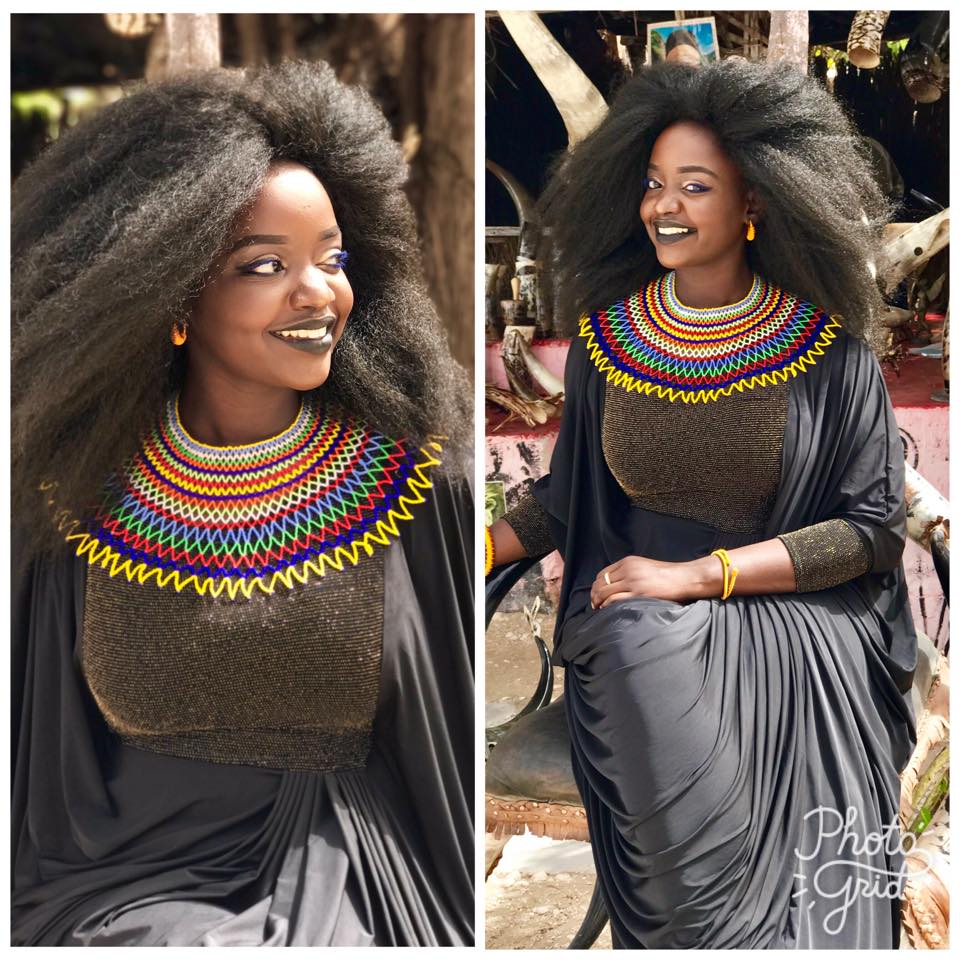 She hopes today with her creativity and her love of fashion, to satisfy her clientele with dignity by highlighting the woman in all its splendor, its authenticity.
She hopes today with her creativity and her love of fashion, to satisfy her clientele with dignity by highlighting the woman in all its splendor, its authenticity.
In the end, his concept is: dressing is expressing oneself, everyone having their say.

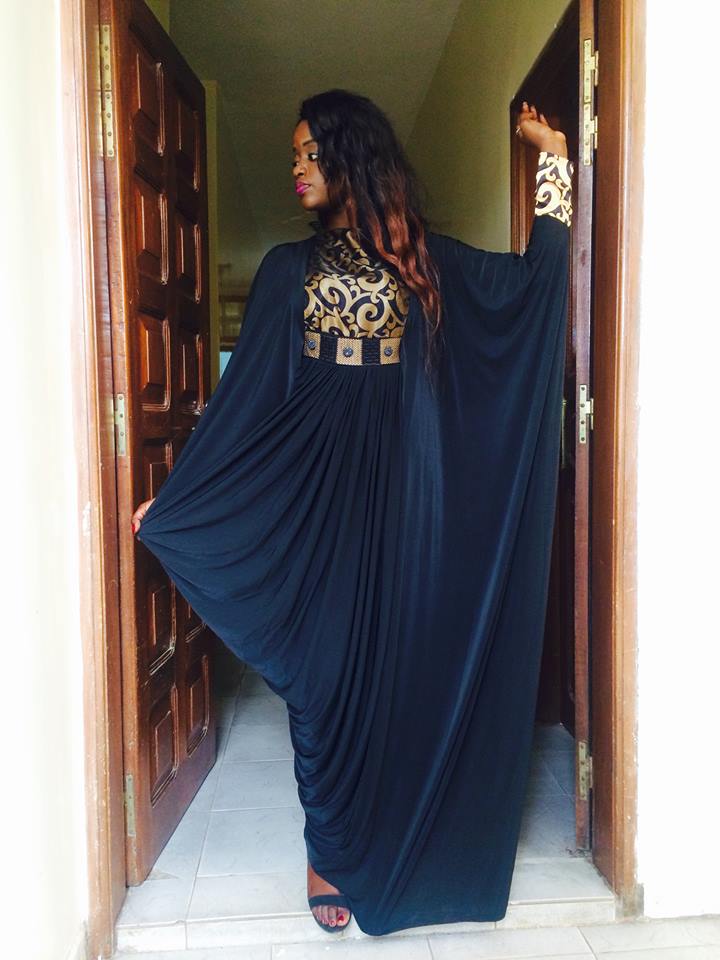
Méya Ndiaye.
PORTRAIT
UNITED STATES – PORTRAIT – Harriet Tubman, the “Black Moses” anti-racist activist
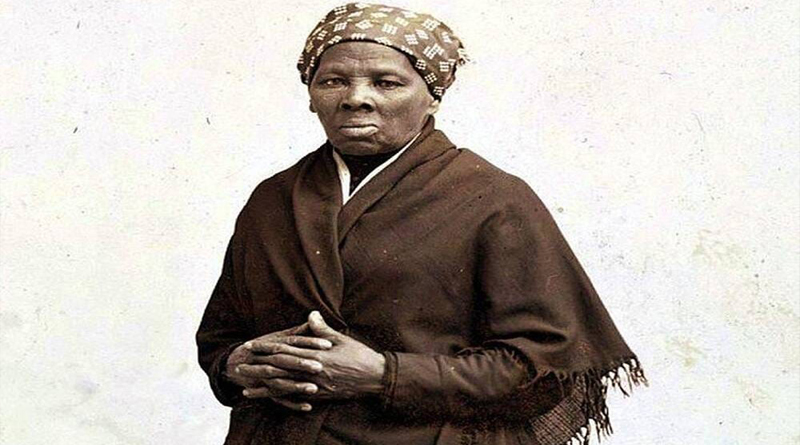
March 10, 2021, marked the 108th anniversary of the death of Harriet Tubman. The anti-racist, feminist activist left us on March 10, 1913 in Auburn (New York State). This woman of combat with strong human conviction, was one of the most important black personalities in the fight against slavery. She has always worked for the respect and dignity of the Black race in the United States. Ze-africanews took an interest in the life of this woman in the extraordinary life.
A birth in Dorchester County
Harriet Tubman was born Araminta “Minty” Ross in 1822 in Dorchester County to slave parents, Harriet (“Rit”) Green and Ben Ross. Rit was owned by Mary Pattison Brodess (and later her son Edward) while Ben was owned by Mary’s second husband, Anthony Thompson, who ran a large plantation near the Blackwater River in Madison, Maryland. She is a Revolutionary activist for the abolition of slavery. His actions allowed many slaves to escape, which earned him the nickname of “Black Moses”. Harriet Tubman has also directed her actions in the fight against racism and the women’s suffrage movement.
A feminist and anti-racist activist
Harriet Tubman led a vigorous fight for the liberation and dignity of the Black race in the United States. She also worked for the emancipation of mostly black women. After the Civil War, Tubman became an activist for the rights of African Americans and women. She has worked to promote the cause of women’s suffrage. She attended meetings of suffragist organizations before engaging with women like Susan B. Anthony, Emily Howland. For Tubman, women deserved access to political rights as much as men.
The “Black Moses” The “Black Moses”
Harriet Tubman was instrumental in the liberation of many slaves in the United States, which earned him the nickname “Black Moses”. She is described as a saviour who did not hesitate to make decisions, to act for his community and to fight fiercely against injustice at the cost of his life to free his own. It drew its inspiration from the Old Testament narratives that evoked a liberation like that of Moses guiding the Jews out of Egypt while rejecting the interpretation of the Holy Scriptures. This inspiration was a key element in his life and guided him to free many slaves.
Abolitionist activist and fighter during the Civil War
Harriet Tubman, a prominent figure in the fight against slavery, actively participated in the Civil War of Secession, a civil war between 1861 and 1865 between the United States of America known as the “Union” led by Abraham Lincoln, and the Confederate States of America under the name of “Confederation” led by Jefferson Davis, which brought together eleven Southern states that had seceded from the United States. Harriet Tubman eventually escaped because she could no longer accept the status of slave. It then carries out actions that allow the liberation of its fellows. Through back and forth in Maryland, she plans her release plans. She starts by releasing family members first, which she explains in these terms: “I was a stranger in a strange world […] My father, my mother, my brothers and sisters were [in Maryland]. But I was free, and they had to be free too”. According to Harriet Tubman, her participation in the civil war was a decisive step towards the abolition of slavery. And it was of course that she decided to join a group of abolitionists from Philadelphia and Boston. In this historic war, which had become a turning point for the slaves of America, and a considerable asset, she worked as a cook and nurse in the ranks.
First black woman to appear on an American bill
Her work, her actions, her positions, her fight against oppression, her militant for the rights of blacks, her abolitionist character as a black woman, Harriet Tubman is formally honored in the United States by a presidential directive of March 10, 1990, his portrait should be on the US$20 bill. The project was postponed by Donald Trump. His successor, President Joe Biden, revived the issue as soon as he came to power in January 2021. This governmental decision to have her face there, if materialized, would make Harriet Tubman, the first black woman distinguished for her humanist voncictions, which will appear on the dollar note.
CHAUD TOO CHAUD
SENEGAL – Seyda Mariama Niasse, a life in the service of Islam
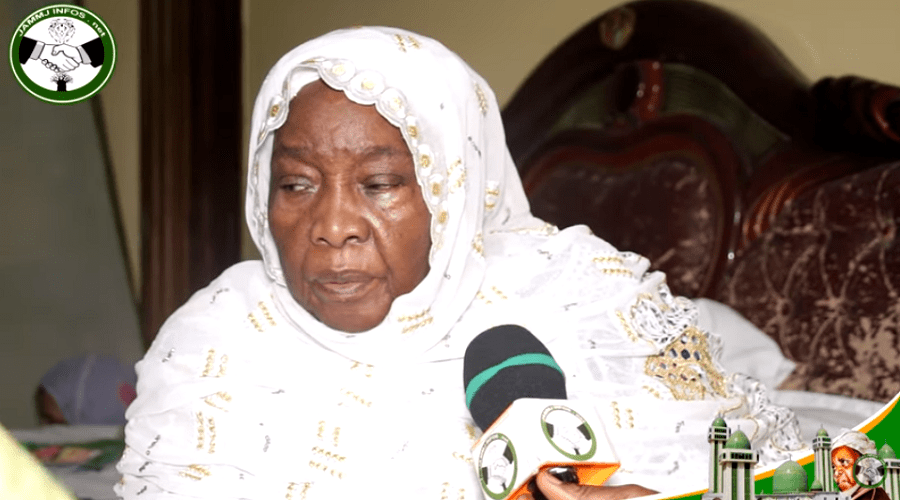
El Hadji’s daughter Ibrahima Niass, Seyda Mariama Niass, died at the age of 88 on Saturday 26 September 2020 at her home in Mermoz, in the Senegalese capital, Dakar. The native of Kossi, near Kaolack, located in the centre-west of the country, will have, in her lifetime, given everything for the education and training of children. His home is erected in “daara”, a Koranic school, where many children from the country and the sub-region were able to learn and master the Koran, the Holy Book of Muslims. Ze-africanews plunges you into the life of a woman whose life was reduced to the worship of her Creator and the teaching of the Koran.
Seyda Mariama Niass devoted her entire life to the Koran. At the age of 14, she was already teaching at her Koranic school in Kaolack, before joining her husband a few years later in Dakar. She thus perpetuated the teachings of her venerable father, El Hadji Ibrahima Niass who bears the name of his school complex which combines religious and general education. This complex, in front of the interchange of the Crow’s foot, is built in 1984 on land that had attributed to him the former head of State, Abdou Diouf.
Her mother Aissatou Sarr died early, leaving her with her brothers and sisters, including the current Khalife of Medina Baye, Sheikh Mahi Ibrahim Niass. At that time, Seyda Mariama was between 14 and 15 years old, and her younger sister, Seyda Hawa Niass, was just three years old. This premature death probably explains the affection that Baye NIASS had for Seyda Marieme and her brothers and sisters. She had to accompany her father on his travels. Baye Niass often said to her daughters: “O you girls, compete (with the men) towards the summit, not by the body”, a call of course by Seyda Mariama. As is customary in the family of Baye Niass, she learned the Koran at the Koran school of Medina Baye, with Rabbani, a Moorish disciple of her father Sheikh Ibrahim NIASS. She was introduced to learning the Koran when she was only 5 years old in 1937. Between 1937 and 1947, she memorized and recited the Holy Book. It is reported that on that day, the venerable Baye Niass was so joyful that he offered her a horse, a cow and her calf as well as jewels.
Very young, she was assistant teacher of Koranic teaching in Medina Baye. After learning the Koran, she studied Islamic Science and the Arabic language with her father Baye Niass and his entourage. Between 1950 and 1952, she taught Koranic teaching in the Madrassa Sheikh Al Islam in Medina Baye.
In 1952, Seyda Mariama joined the marital home in Dakar, after his marriage in 1949 with El Hadji Omar Kane, the first «Mukhadam» of Baye Niass in Dakar. In Dakar, she began to teach the Koran in her room. She had just created her first Daraa Quran Al Karim, inside the family home, located on Malick Avenue SY. Her goal had nothing to do with the lure of gain but she wanted to remain consistent with the hadith of the Prophet Muhamed, (PSL): «The best of you is the one who learns the Quran and teaches it.» [Al-Bukhari 5027]”.
In 1960, when she was 28 years old, Seyda Mariama made the first pilgrimage to Mecca with her father Baye Niass. Between 1960 and 1962, she went to study in various English-speaking African countries such as Ghana and Nigeria, Arabic-speaking countries such as Egypt, Libya and Morocco, and French-speaking countries such as Mauritania, Niger and Mali. Study trips within the framework of the World Islamic League (LIM), of which his father Sheikh Al Islam was a founding member. From 1962 to 1967, she began to receive students from these countries for Koranic education. From 1967, she made a second pilgrimage to Mecca. In the years 1967 to 1975, the Islamic complex Dar Al Quran Al Karim located in Malick Sy is extended with the diversification of activities.From then on, she started in the sector of the transport of personnel and people to the Holy Places of Islam but also in the commercial sector, the sewing, the embroidery and the import-export etc. MeanwhileThere, she made trips to several countries of the Middle East.In the early 80’s, with the appearance of videotapes, she used to buy them during her travels, for her students.

Once in Senegal, she used it to attract her learners by having them follow soap operas and cartoons in Arabic. It was to prevent children from going to other occupations on their own time. At the time, television was rare in Senegal. Between 1975 and 1981, the students of Dar Al Quran participated in the great world competition of recitation and memorization of the Holy Quran.
In 1981, President Abdou Diouf, who had just taken power, made his first exit to Taïba Niassène. One of Seyda Mariama Niass’ students, Aly Harazim, now Imam in Strasbourg, France, was chosen to recite the Qur’an during the welcoming ceremony.Moved by the beautiful voice and the mastery of the Koranic words by the young boy, President Diouf asked for information about the boy. He is told that he is a child from Dar Al Quran Al Karim, by Seyda Mariama Niass.Abdou Diouf committed himself on the spot to support the servant of the Koran to have a training center.
In 1984, she laid the foundation stone of her Islamic complex. The following year, she organized a Day of Reflection on Koranic Teaching. In 1987, she travels to the Gulf countries: Kuwait, Oman, Abu Dhabi etc. This stage of Abu Dhabi was decisive because it declined the juicy offer of the wife of the then King Zayed ben Sultan Al Nahyane, Sheikha Fatima. The Queen, after listening to the beautiful Qur’an recital of the very young Ali Harazim student of Seyda Marieme, had proposed to him to stay in Abu Dhabi to transmit his know-how to the children of his country. Seyda Mariama answered politely and courageously patriot «Houbul watani minal imaan», (loving one’s homeland is part of the faith).
It was during this same period, precisely in 1988, that she bought her house in Mermoz, on a grant from Algerian President Chadli Bendjedid and with the support of President Abdou Diouf.
In 1989, Seyda Mariama organized a seminar day of the Koran, followed by the inauguration of the house of Mermoz. In the same year, it participated in a mediation between Senegal and Iran, which led to a resumption of diplomatic relations between the two countries. In 1990, it opened a Koranic and Arab teaching centre (boarding school system) at Sacré-Coeur in Dakar, housing more than a hundred students of several nationalities. In 1991, it organized the third Quran Day at the Dakar International Fair as part of the preparatory activities for the Summit of the Islamic Conference.
Also in 1991, the largest public works company in Saudi Arabia, AL OWEIDA recruited 400 Senegalese workers over a period from 1991 to 1996, thanks to the good offices of Seyda Mariama Niass.

Dar Al Quran students participated in the World Best Quran Reciters Competition in Jeddah (Saudi Arabia) in 1992. In the same year, it obtained funding for the first part of the Sheikh Al Islam Complex by the Saudi Crown Prince Sultan Ben Abdoul Aziz Al Saoud. In 1993, it built a preschool and elementary school, intended for classical and Islamic education. The Sheikh Al Islam Arab College was opened in the same year.
In the years 1994-1995, the Franco-Arab school Sultan Ben Abdoul Aziz began with a preschool, elementary and authorized by a ministerial decree number 0082/MEN/DEP of 03-01-1995. Teaching is bilingual: in French for general education and in Arabic for Islamic education. In 1996, the school was recognized by presidential decree number 96834 of 08 October 1996.
Yaboye Seyda, as she was joyfully called, participated in 1999 in the mediation between Senegal and Sudan, which led to the resumption of diplomatic relations between the two countries in the same year. It was also in 1999 that Seyda Mariama’s students participated for the first time in the Dubai International Quran Contest, which ran until 2005.
The first experiment starts with Saudi Arabia, Mauritania, Egypt and finally Morocco in 2007. This action aims to implement a pedagogy that helps to open the minds of students to the Islamic world and make them citizens able to understand the other and to establish a partnership with it. In the same year 2000, Ministerial Order number 0100455/MENTFP/DEP of 27-11-2000, extending the school to include a middle secondary level, is taken. In August 2000, Prince Naef Bin Abdel Aziz, during a visit to Senegal, granted Seyda Mariama Niass a grant that allowed him to build the middle secondary cycle and double the number of classrooms after the ministerial decree of 27-11-2000.
In January 2007, the government of the Islamic Republic of Mauritania made a cooperation mission available to Dar Al Quran. Thus, it is composed of fifteen teachers, ten professors in different disciplines and two inspectors. This is to cover all the needs for Arabic and Islamic education in elementary and secondary school.
In June 2007, Seyda Mariama Niass was selected as one of 300 global Islamic personalities invited by the University of Cambridge under the aegis of the government to make the voice of Islam heard and to work towards the establishment of an Islamic-Judeo-Christian in the framework of the conference on Islam and Muslims in the World of Today, held on 04 and 05 June in London.

In September 2007, she was named the winner of the Fête de l’Excellence, which honours the best students in the CM2 class in Senegal and receives the Female Leadership in Education Award from First Lady Viviane WADE, President of the Health Education Foundation and the Minister of Education, Moustapha Sourang.
On 18 April 2013, Seyda Mariama was awarded the Diploma of Honor by the Fallou Gallas International Multimedia Magazine Group for her courage and determination in the vast fields of Islam. Finally, on 16 December 2013, she was decorated by President Macky Sall with the National Order of Merit.
His son, Ousmane Oumar Kane, is Full Professor of Middle Eastern Languages and Civilizations at Harvard University in the United States, and the first Professor to hold the Chair of Islam and Contemporary Muslim Societies at this renowned University.
Seyda Mariama Niass’s relations with other religious homes in Senegal are excellent. I remember when Serigne Mourtada Mbacké was called to God, I accompanied him to Touba to offer our condolences. Serigne Mame Mor Mbacké Mourtada was very happy with this act.After welcoming and pampering us, he told us that when his father founded Al Azhar, Baye Niass had participated», says Seyda Assy Kane.
Today, it is difficult to estimate the number of people who learned and memorized the Holy Quran from Seyda Mariama Niass. It is rare to enter any service in Senegal, without finding there a person trained in Daar Al Quran Al Karim, or a son of a person from this prestigious school. His career in Islam bears witness to his determination to serve Islam during the 88 years he spent on earth.
PORTRAIT
ALAA SALAH – the symbol of protest in Sudan.
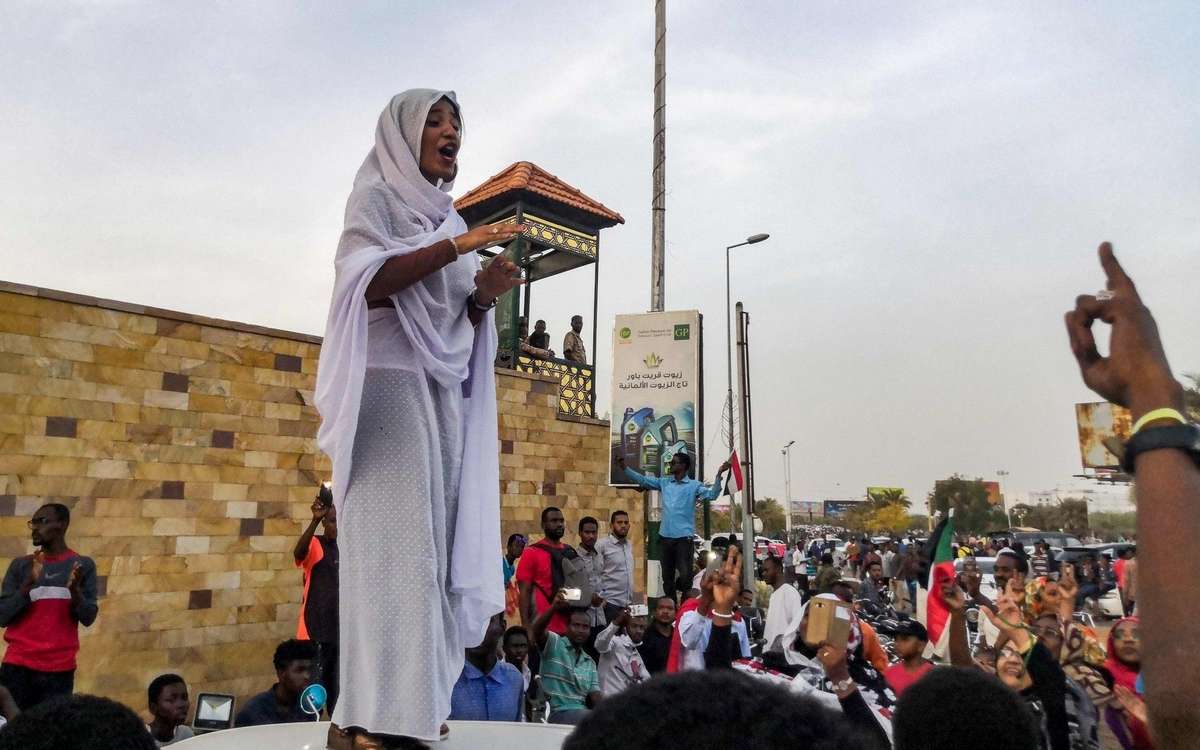
The young Sudanese Alaa Salah is considered the icon of the anti-government protest in Sudan that led to the fall of President Omar el-Bechir on Thursday, April 11, 2019.
A photo of Alaa Salah went around the world, thanks to the social networks: one sees it dressed in white, standing on a car, haranguing the crowd in front of the headquarters of the army. This image helped to make her one of the icons of protest in Sudan.
In a video turned viral on the internet, she calls to fight against the power of President Omar el-Bashir. Her figure and her attire earned her the nickname “Kandaka” – “the Nubian queen” – in reference to the sovereigns who marked the history of the region in antiquity.
Alaa Salah is a student in Architecture and Engineering at Khartoum International University. According to her, the history of her country is marked by influential queens: “It’s part of our heritage.”
She explains on her Twitter account that she got on the car to talk to the people, to condemn racism and tribalism in all their forms.
“Thank you from the bottom of my heart. The fight for a democratic and prosperous Sudan continues. We will not bow to Bashir, the tyrant dictator, “writes Alaa Salah in a widely shared message. The death threats she claims to receive have no deterrent effect on her: “I will not bow. My voice can not be suppressed, “wrote the young woman.
Recall that the protesters initially rallied against the government’s decision to triple the price of bread, before calling for the departure of President Omar al-Bashir.
-

 CULTURE3 years .
CULTURE3 years .SENEGAL – “Sadik Lady” by Viviane Chidid
-

 CULTURE2 years .
CULTURE2 years .SENEGAL – Thiéboujeun inscribed on the World Heritage Site
-

 CULTURE1 year .
CULTURE1 year .SENEGAL – Massamba Guèye wants to democratize the story
-

 EAST AFRICA1 year .
EAST AFRICA1 year .TANZANIA – President meets with Chairman of the Board and CEO of the Merck Foundation
-

 A LA UNE3 years .
A LA UNE3 years .GUINÉE: Manchester United: Paul Pogba absent several weeks
-

 MOROCCO1 year .
MOROCCO1 year .MOROCCO – The King of Morocco Mouhamed VI finally in Dakar, tomorrow Tuesday
-

 IMMIGRATION9 months .
IMMIGRATION9 months .AFRICA – Migrant smuggling brings 59 billion CFA francs to smugglers per year
-

 HANDBALL3 years .
HANDBALL3 years .TOKYO 2021 – France’s women’s handball team dominates Sweden and go to the final



